On the early morning of Day 6, we checked out the rooms after breakfast at the hotel. We left our luggage at the hotel as we still had half a day tour in Osaka, before we depart for Hiroshima (広島) in the late afternoon. Our first stop of the day was the Momofuku Ando Instant Ramen Museum, which is located quite far away from the city centre. After leaving the
New Osaka Hotel Shinsaibashi, we took the subway from Shinsaibashi Subway Station (心斎橋駅) to Umeda Subway Station (梅田駅) on the Midosuji Line, followed by changing to the Umeda Hankyu Station (梅田駅) to take the Hankyu Takarazuka Line to Ikeda Station (池田駅).
Momofuku Ando Instant Ramen Museum
From the Ikeda Station (池田駅), it was another 5 min short walk before we reached the Momofuku Ando Instant Ramen Museum. You might not have heard of the name Momofuku Ando, but you must have heard about the Nissin instant noodle. Mr Momofuku Ando is the inventor of instant noodle and cup noodle, and the founder of the company Nissin Foods. Thanks to his invention in 1958, now everyone can enjoy a hot bowl of noodles at quick convenience and affordable price.
 |
| Momofuku Ando Instant Ramen Museum |
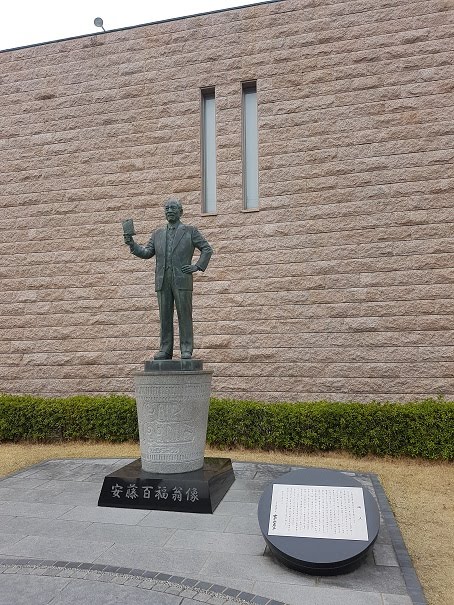 |
| Statue of Mr Momofuku Ando |
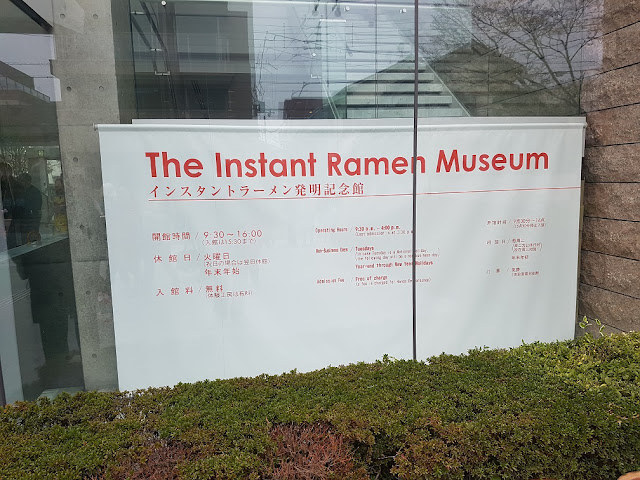 |
Opening Hours
|
Entrance to the Momofuku Ando Instant Ramen Museum is free. We started the tour at the main exhibition hall. We immediately caught attention of the impressive "Instant Ramen Tunnel", which displayed the different types of instant noodles created by Nissin since their founding in the 1950s.
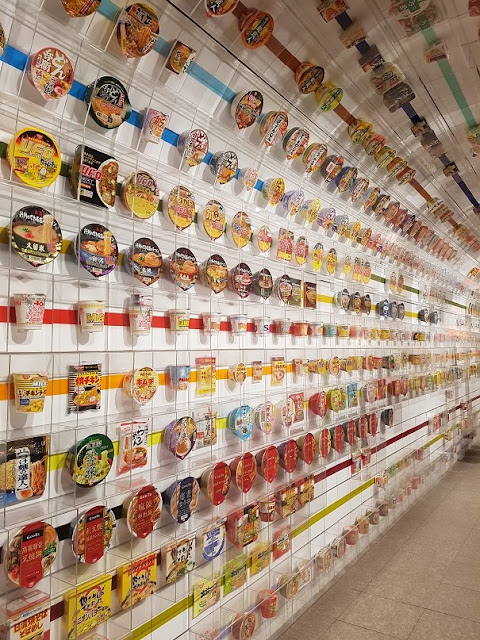 |
| The Instant Ramen Tunnel |
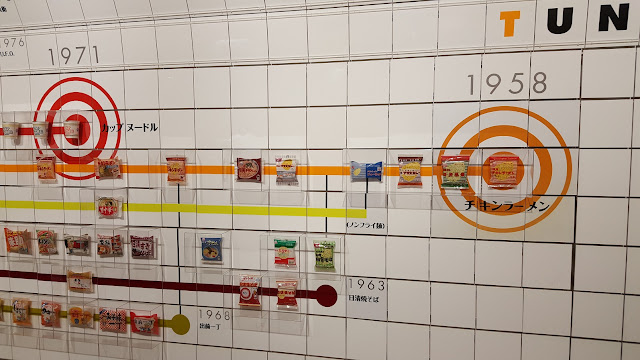 |
| Chicken Ramen on the right most, the World's first instant noodle |
The other half of the exhibition hall focus on the life story of Mr Momofuku Ando, his invention of the instant noodle and cup noodle, and the history of Nissin.
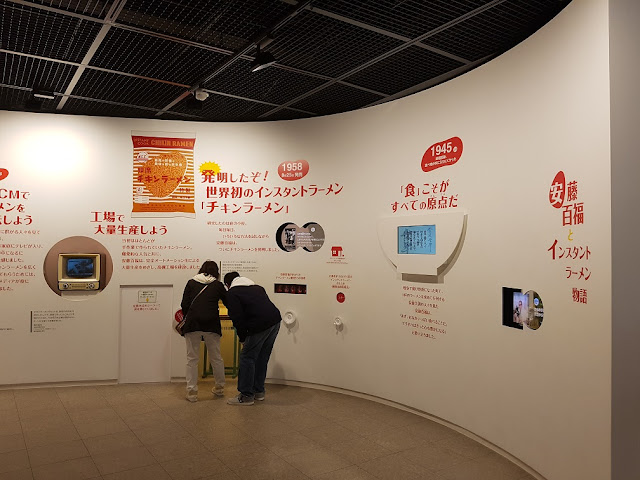 |
| Exhibition area |
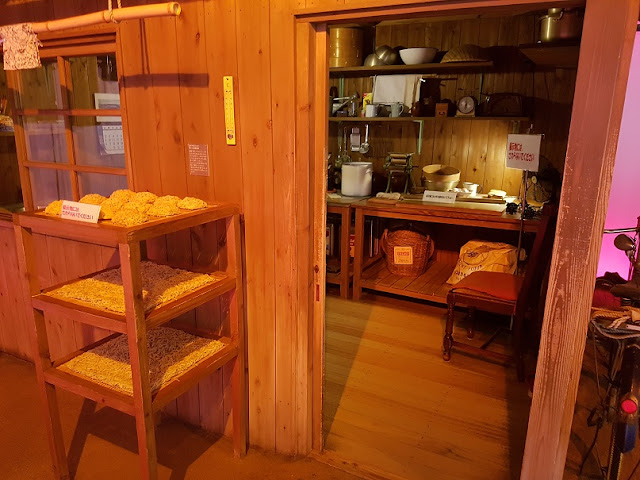 |
| Re-production of Mr Momofuku Ando's work area in the 1950s |
 |
| Mass production of the Chicken Ramen |
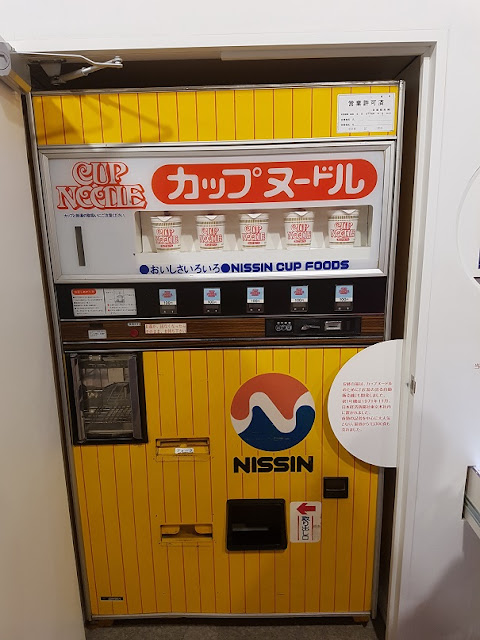 |
| Cup Noodle vending machine |
 |
| Noodle making equipment |
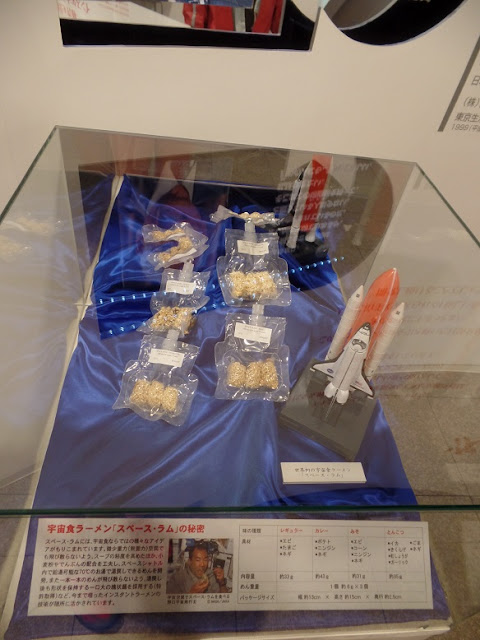 |
| Instant Ramen going to space! |
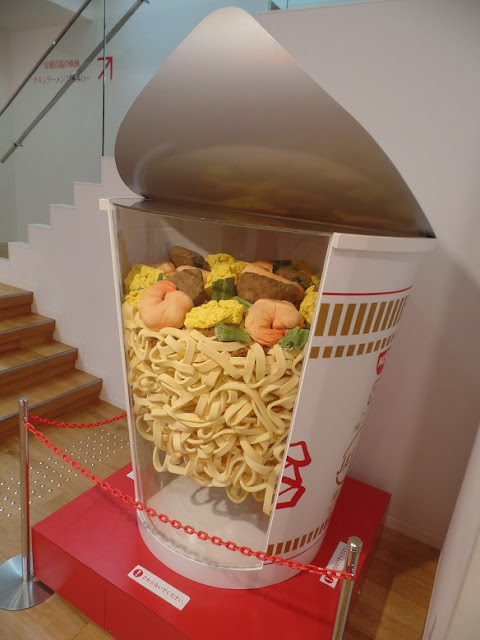 |
| Cross-sectional view of a Cup Noodle model |
After the tour of the exhibition hall, we proceeded to the next area, My Cupnoodles Factory, which is the highlight of the museum. Over there, we could make our own customised cup noodle, at a price of 300 Yen each. The whole place was full of people, mainly children and their parents.
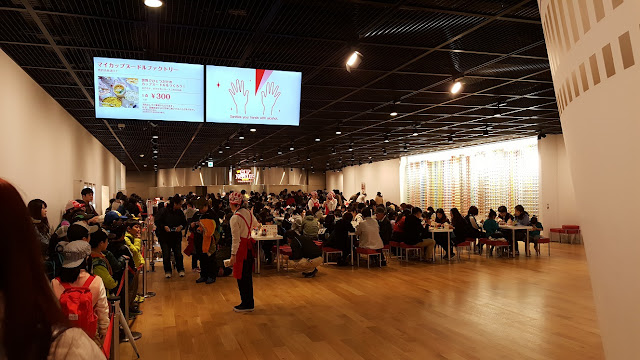 |
| My Cupnoodle Factory |
We joined in the queue to get our customised cup noodles too, as a form of souvenir. First, we had to purchase the empty cup from a vending machine, 300 Yen each as mentioned earlier.
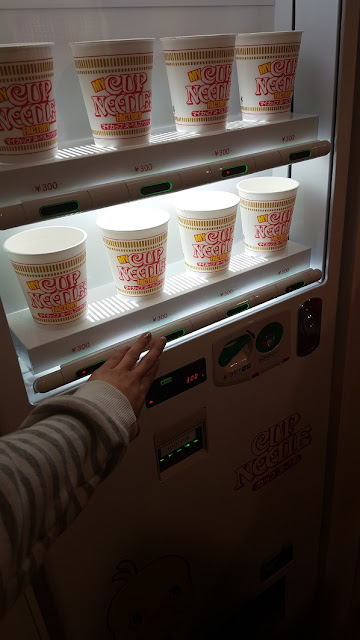 |
| Purchase the empty cup from the vending machine |
After we finished designing the cups, we proceeded to the last station to fill the ingredients. Pass the empty cup to the staff, and they would fill it with the noodle.
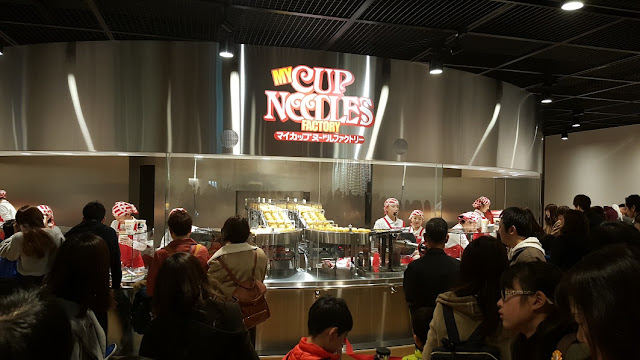 |
| Queue up to fill the noodle and ingredients |
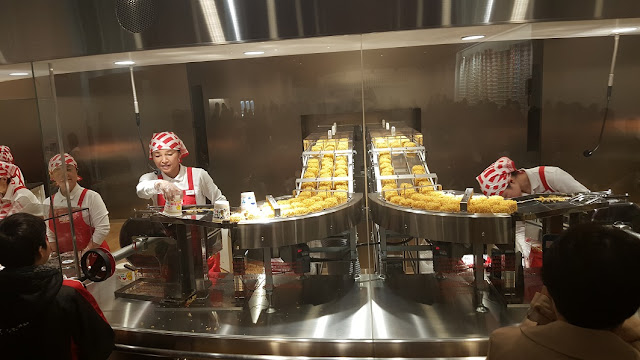 |
| Filling of noodle to the cup |
Next, we had to choose the ingredients. We can choose 1 soup flavour (original, curry, seafood or chili tomato) and up to 4 toppings (such as Hiyoko-chan fish sausage, crab-flavoured fish sausage, corn, shrimp, cube roast pork and egg etc).
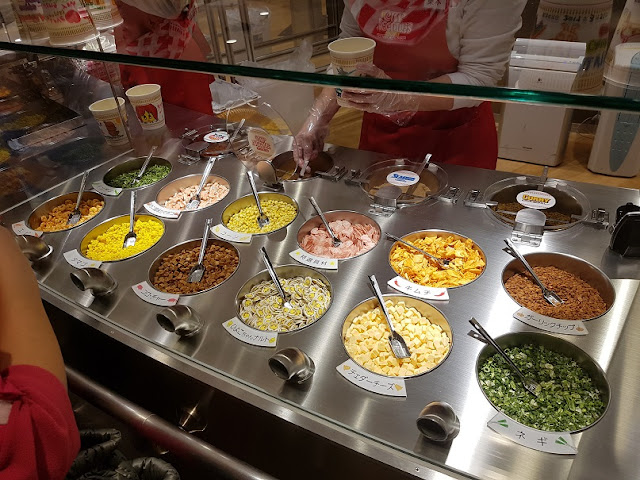 |
| Filling of soup flavour and toppings |
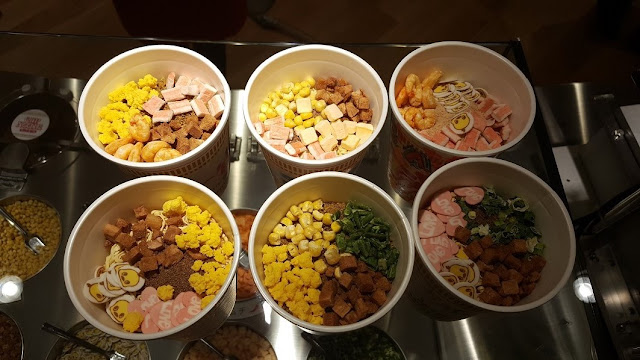 |
| Our customised cup noodle |
After the filling of the ingredients, the cup would be sealed, followed by shrink wrapped. And that's done! We collected the cups and everyone of us were satisfied with our creations.
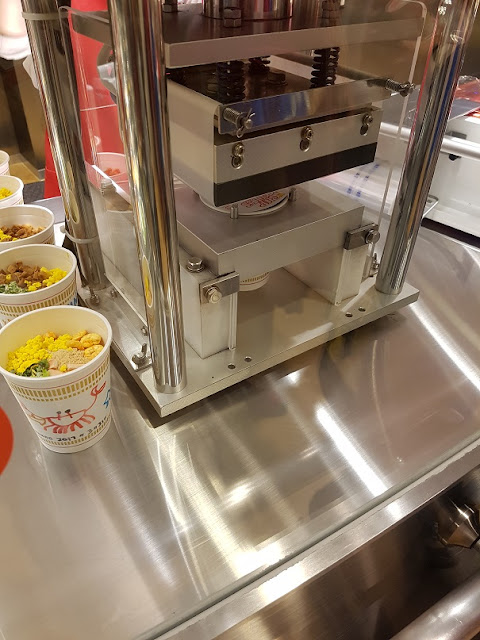 |
| Cup noodle sealed |
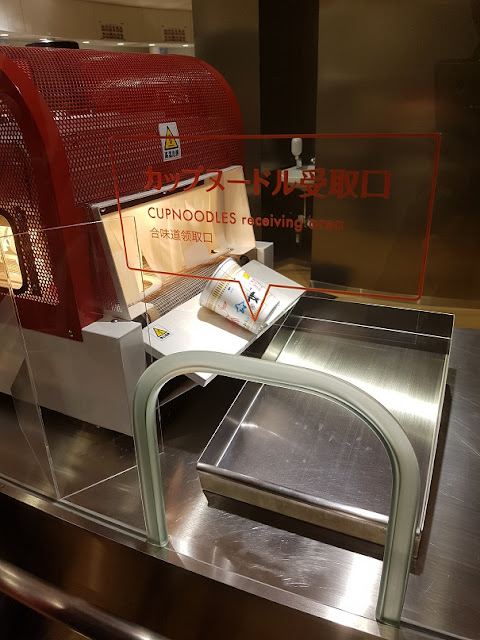 |
| Cup noodle shrink wrapped and completed |
Overall, it had been an enjoyable trip at the museum, especially we had learnt about the history of instant and cup noodles, as well as its manufacturing process.
Lunch @ Tenjinbashi-suiji Shopping Street (天神橋筋商店街)
After the museum tour, we made our way back to the Ikeda Station (池田駅), took the Hankyu Takarazuka Line to Umeda Hankyu Station (梅田駅). From there, made a transfer by walking to the Higashi-Umeda Subway Station (東梅田駅) and another journey via the Tanimachi Line to Tenjinbashisuji Rokuchome Subway Station (天神橋筋六丁目駅). Walking out of the station, this is the northern end of the Tenjinbashi-suiji Shopping Street (天神橋筋商店), the longest covered shopping arcade in Japan, more than two kilometres long. As it was already quite late, we had a quick lunch at the nearby MacDonald's.
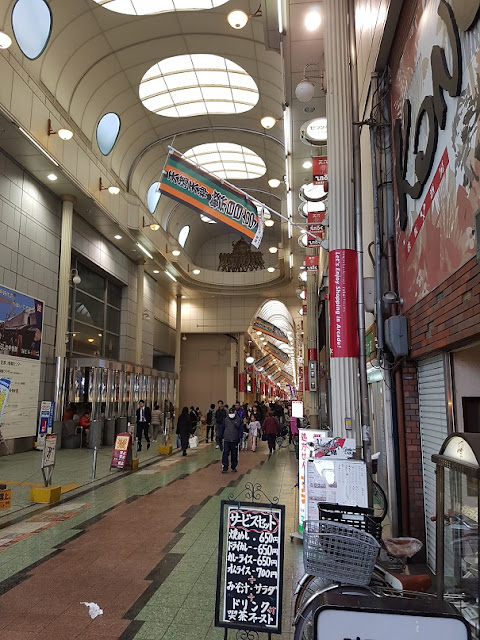 |
| Tenjinbashi-suiji Shopping Street |
 |
| Doraemon merchandise on sale at MacDonald's |
 |
| Our MacDonald's lunch |
Osaka Museum of Housing and Living (大阪くらしの今昔館)
After our lunch, we headed for the
Osaka Museum of Housing and Living (大阪くらしの今昔館), our last attraction in Osaka. It is located on the 8th and 9th floor of the Osaka Municipal Housing Information Center building, which is literally just opposite the MacDonald's where we had our lunch.
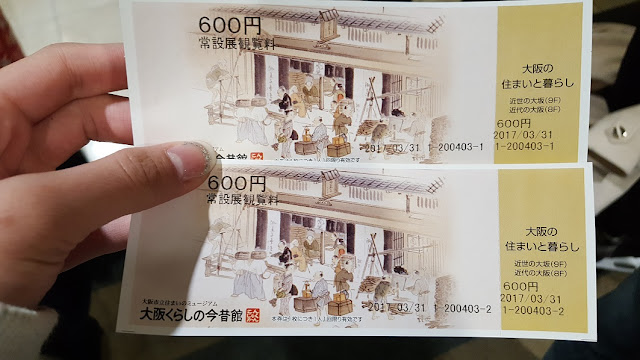 |
| Entrance tickets to Osaka Museum of Housing and Living |
The main highlight of the museum is the life-size street scene re-production of Osaka city during the Edo period (1603 - 1867), which is the only one of its kind in Japan. Through walking along the streets, we got to learn about the lifestyle of Osaka in the past, the architecture of the houses, the tools and ornaments used.
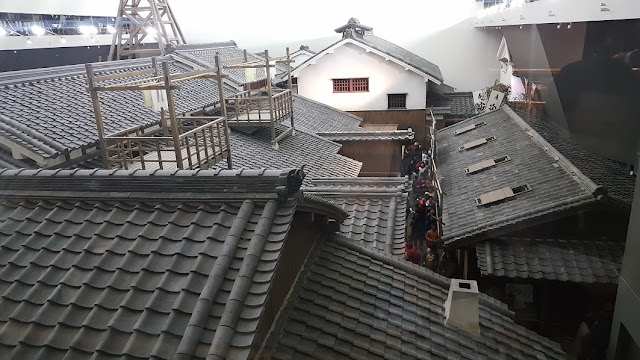 |
| Overview of the "town" |
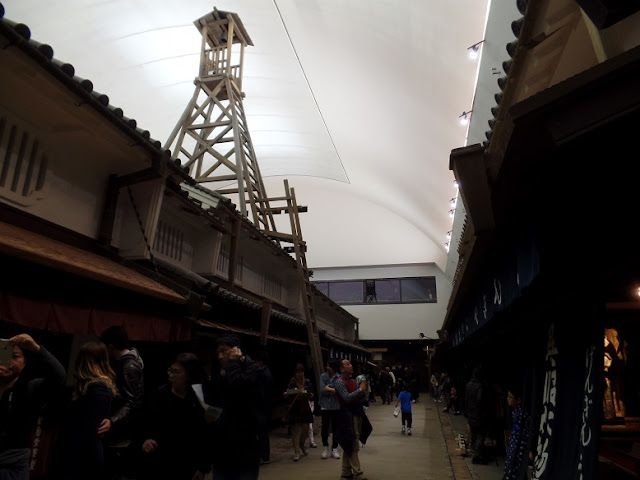 |
| Walking along the re-created old street |
Next, we made our way to the 8th floor, which exhibited miniatures depicting the scenes of Osaka during the Meiji and post-war period. Over here, there's also displays on household equipment used during those days.
Journey to Hiroshima (広島)
After the museum tour, it was time to bid farewell to Osaka. We went back to our
New Osaka Hotel Shinsaibashi to collect our luggage, then took the subway to Shin-Osaka Station (新大阪駅). We would be taking the Shinkansen Sakura to Hiroshima Station (広島駅), which the journey would take around 1.5 hours. Before we depart, we bought the famous 551 Horai pork bun and the Rikuro Ojisan no Mise cheese cake from the train station.
 |
| Horai 551 Pork Bun |
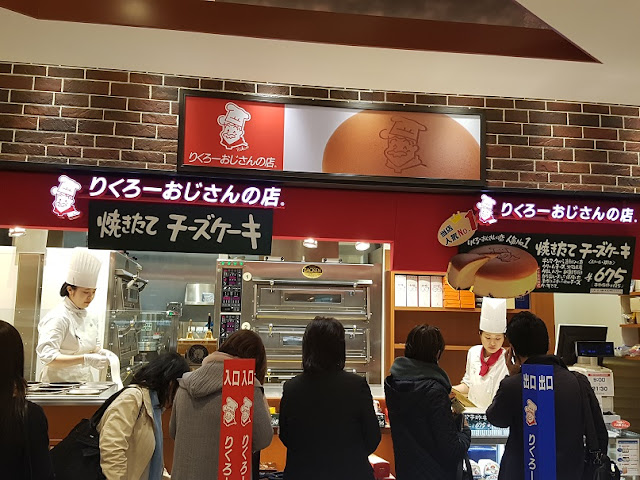 |
| Rikuro Ojisan no Mise Cheese Cake |
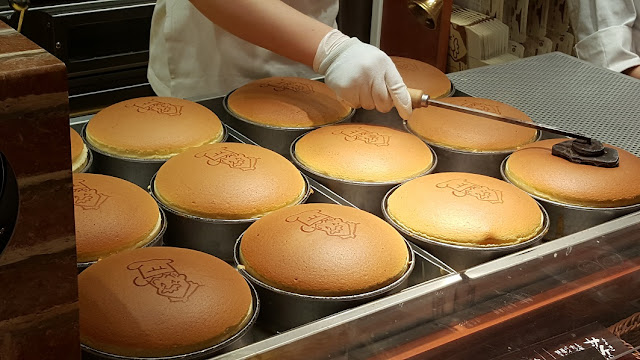 |
| Cheese Cake on final touch |
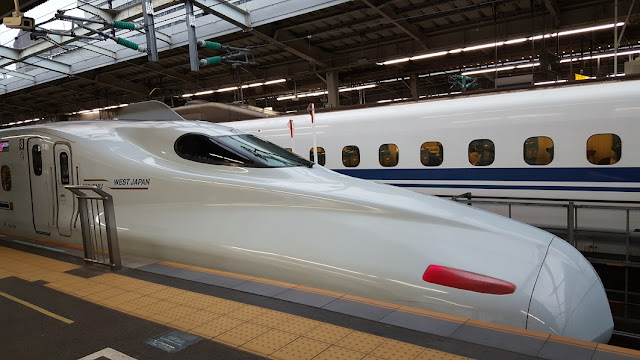 |
| Awaiting Shinkansen ride to Hiroshima |
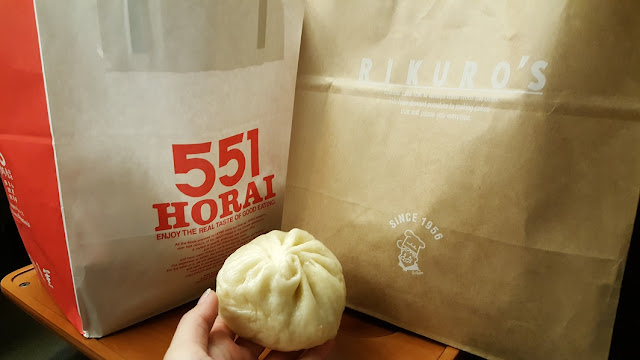 |
| Having a quick bite on the Shinkansen |
Once we reached Hiroshima Station (広島駅), we were already hungry and went to the building (Asse Eki) above the station to look for a place to have our dinner. We went to the 2nd floor and settled at a restaurant called Ajiyoshi (あじよし), which specialise in noodles and Donburi (rice bowl dish). I ordered the deep-fried oyster Donburi, because I thought it was quite special. Apparently, I later found out that oyster dish is quite common and popular in Hiroshima.
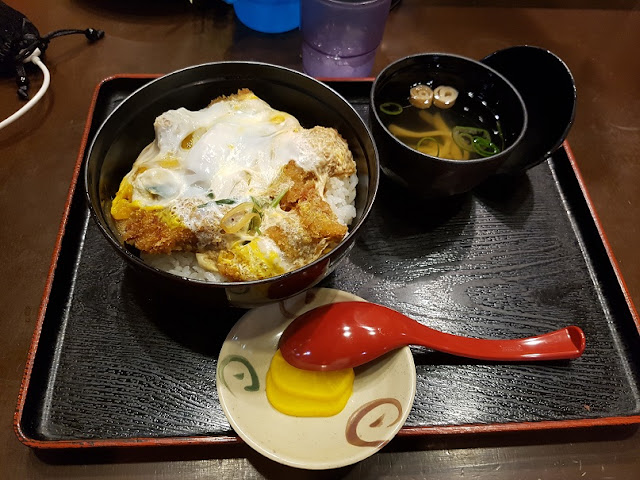 |
| Fried Oyster Donburi |
After our dinner, we made our way to the Hiroshima Hiroden Station (located in front of the railway station) to take the tram to Honkawa-cho Hiroden Station (本川町), which our Airbnb accommodation is located nearby.
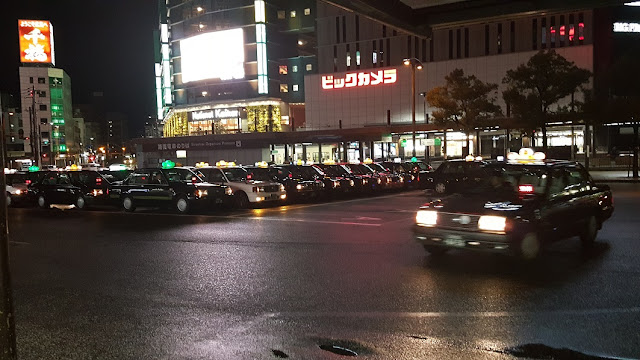 |
| Hiroden station in front of the railway station |
Follow the links below to the other days of my Japan tour:
Day 1: Ueno, JR Pass, PASMO, Nakamise-Dori Shopping Street, Senso-ji Temple, Tokyo One Piece Tower
Day 2: Shinkansen, Odawara, Hakone Free Pass, hakone Venetian Glass Museum, Togendai, Owakudani, Lake Ashi Sightseeing Cruise, Hakone Yuryo, Onsen
Day 3: Kyoto, Fushimi Inari Shrine, Kiyomizu-dera Temple, Gion, Pontocho
Day 4: Kyoto Imperial Palace, Kinkaku-ji Temple, Arashiyama, Togetsukyo Bridge, Arashiyama Bamboo Grove, Kyoto Nishiki Warai
Day 5: Osaka, New Osaka Hotel Shinsaibashi, Osaka Aquarium Kaiyukan, Osaka Castle, Shinsaibashi Shopping Street, Dotonburi, Ichiran Ramen
Day 6: Momofuku Ando Instant Ramen Museum, Tenjinbashi-suiji Shopping Street, Osaka Museum of Housing and Living
Day 7: Hiroshima, Tram, Miyajima, Giant Torii Gate, Sika Deer, Itsukushima Shrine, Atomic Bomb Dome, Hiroshima Peace Memorial Park, Hiroshima Peace Memorial Museum, Hondori Street, Okonomiyaki
Day 8: Hotel Sardonyx Ueno, Meiji Jingu, Shibuya Crossing, Hachiko Dog Statue














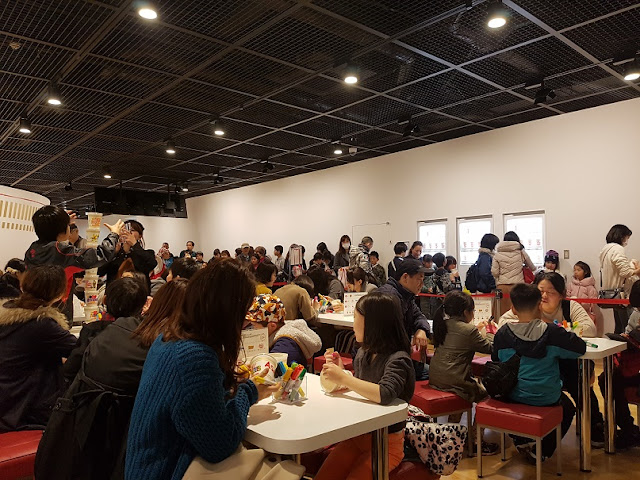

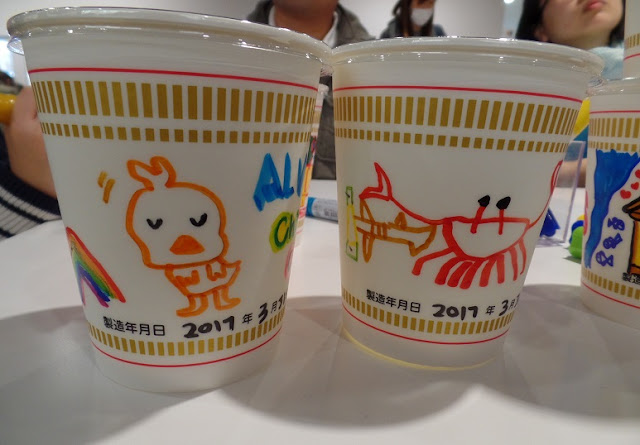












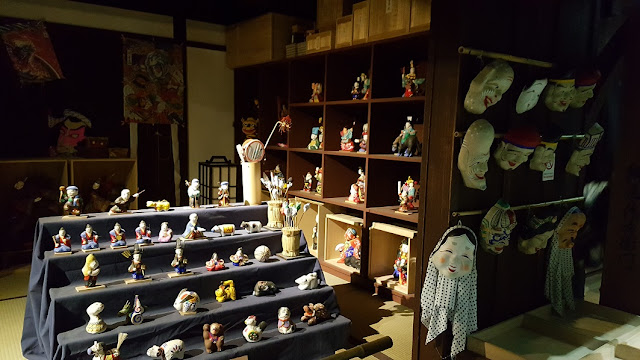
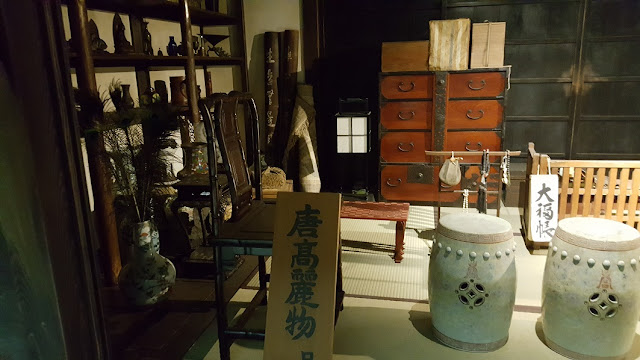
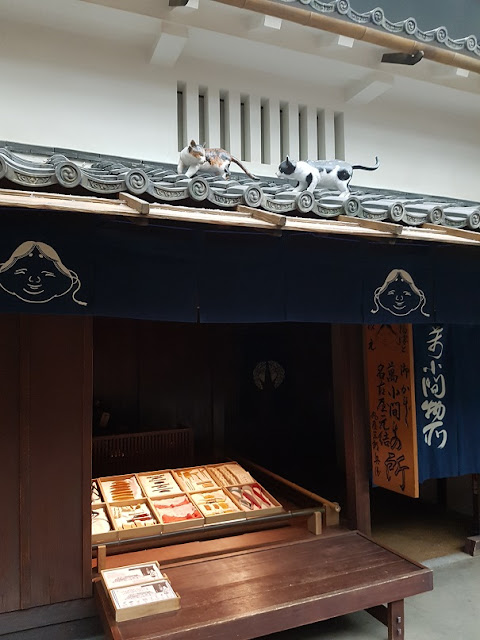
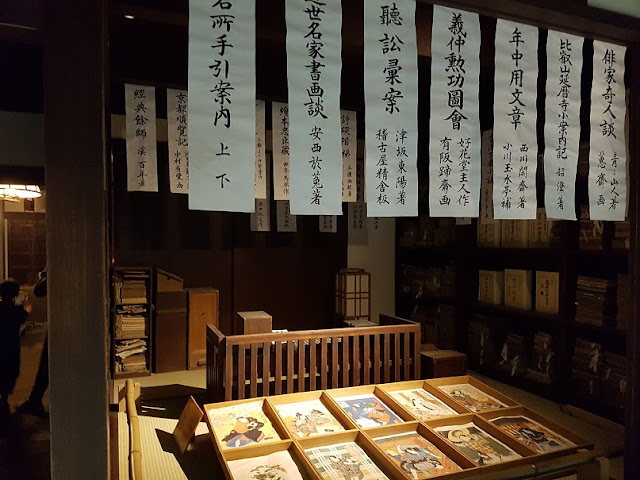

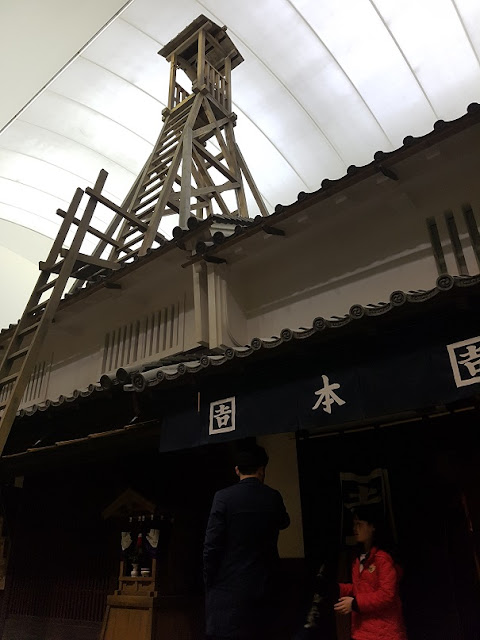
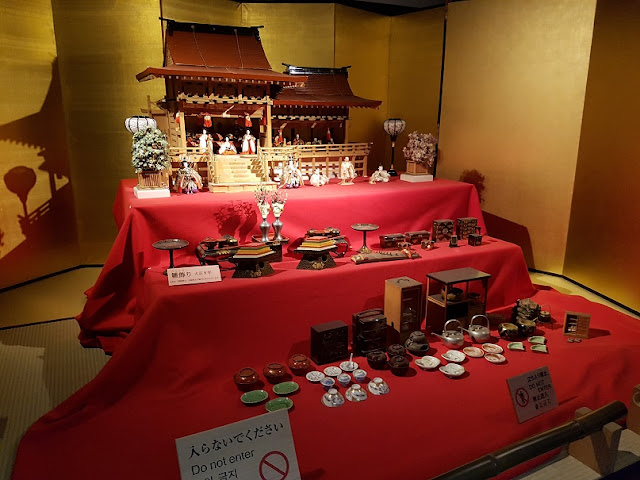

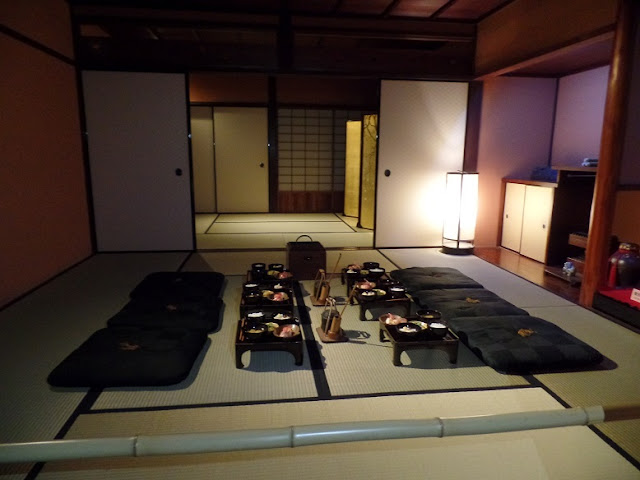
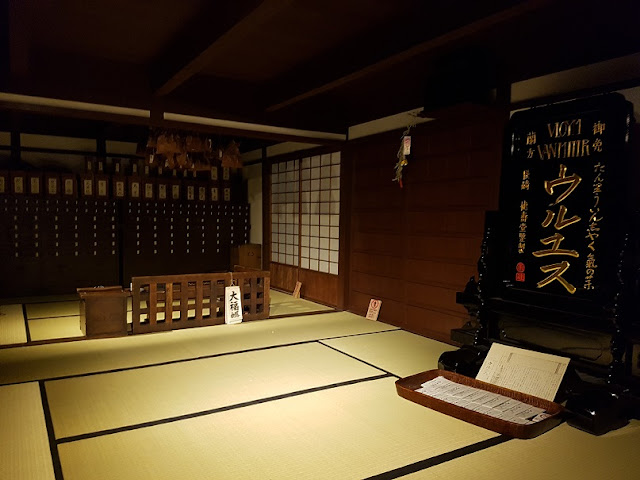
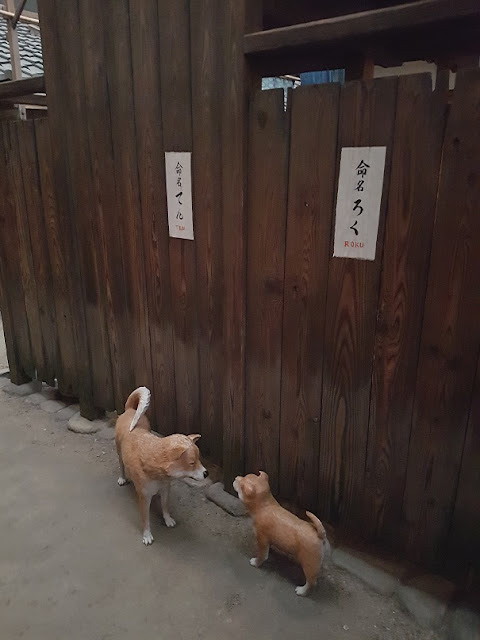
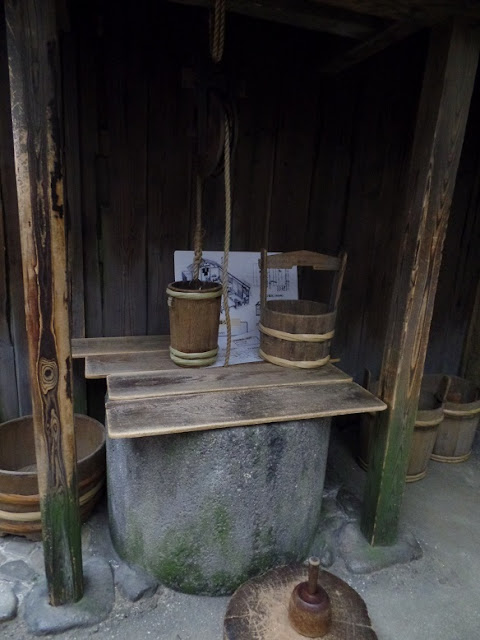
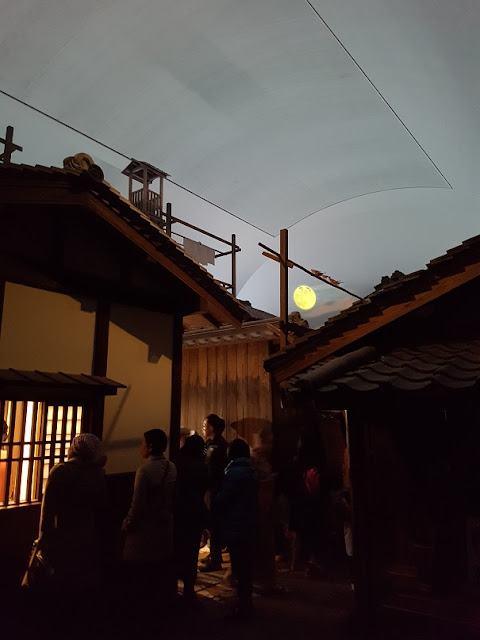
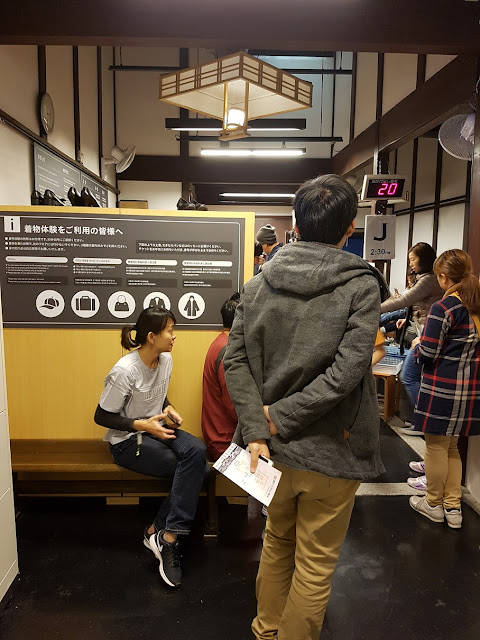
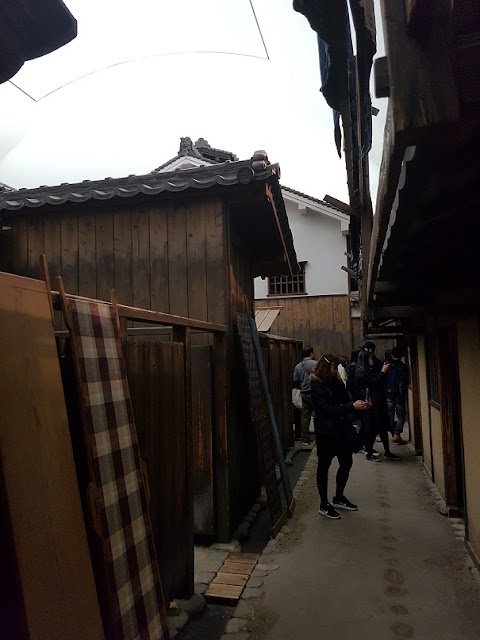








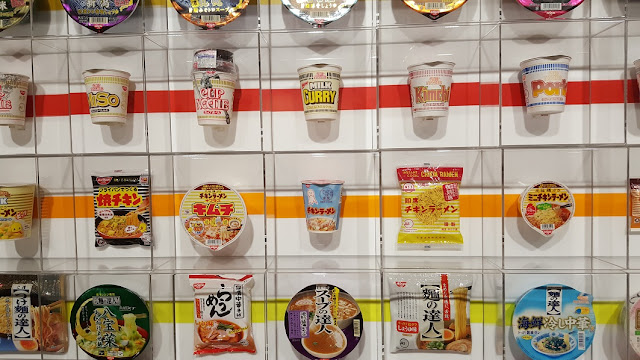
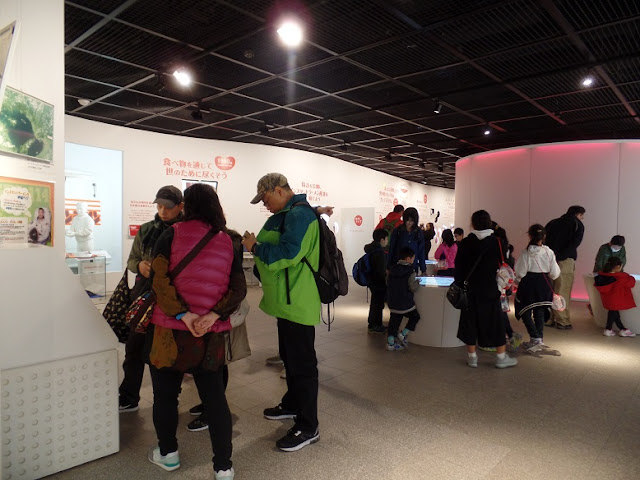
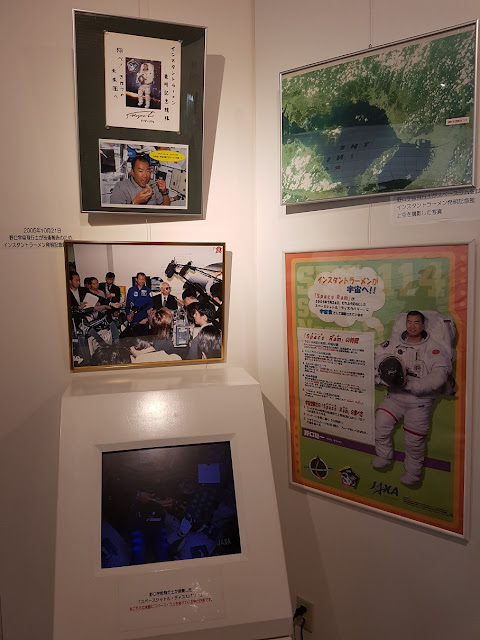

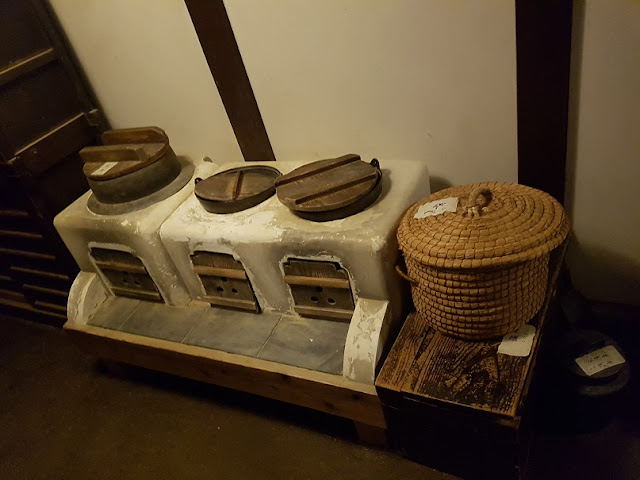
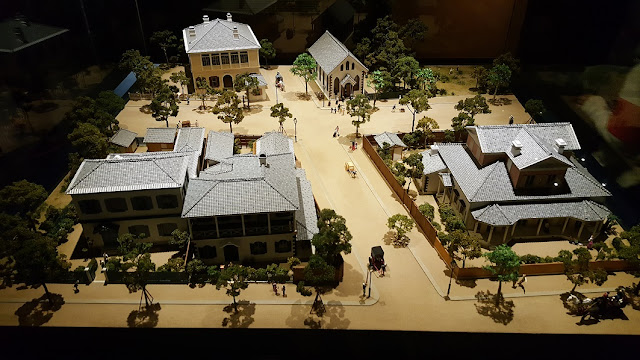
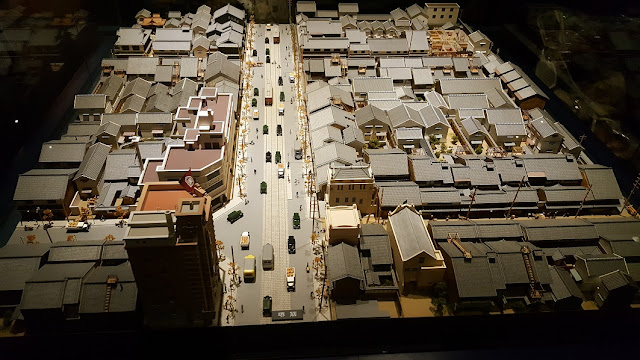

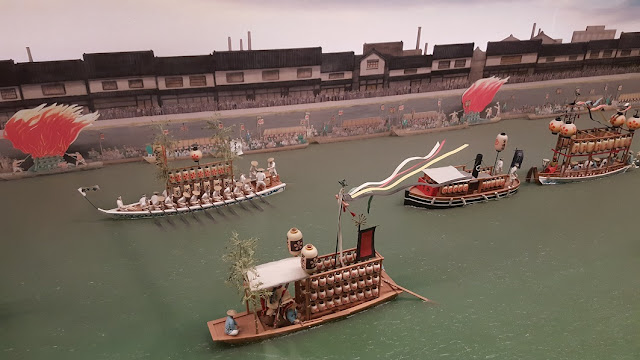
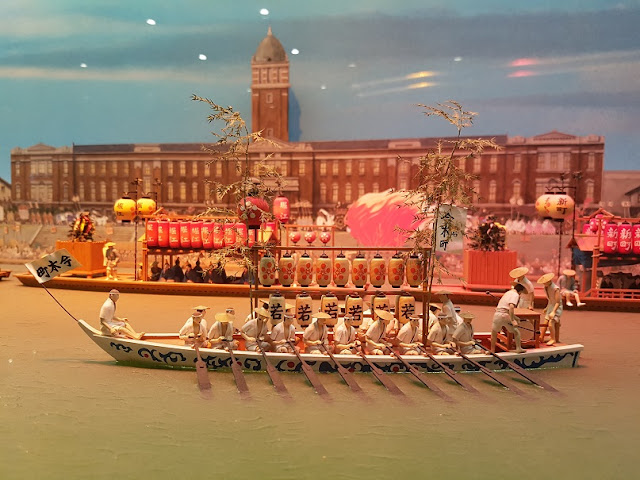
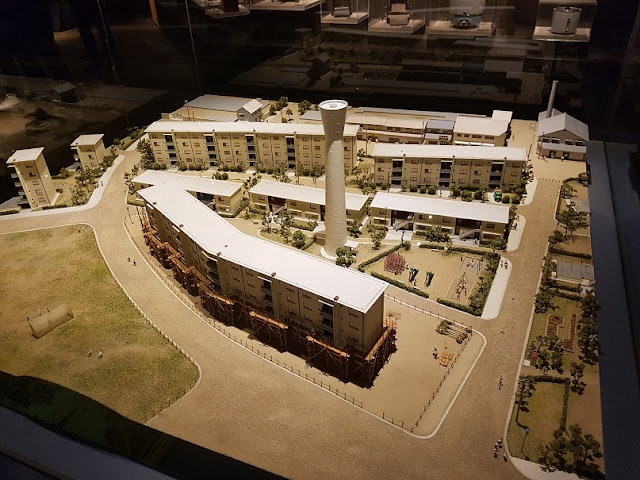
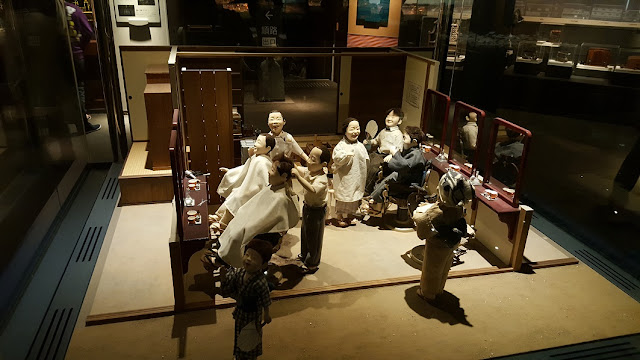
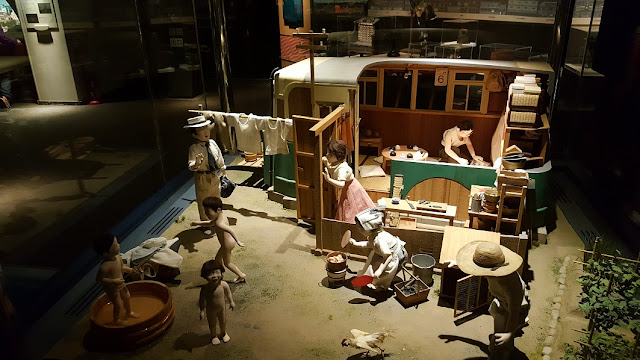
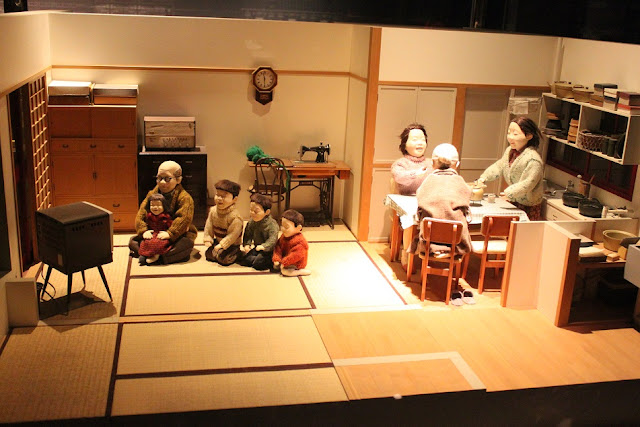
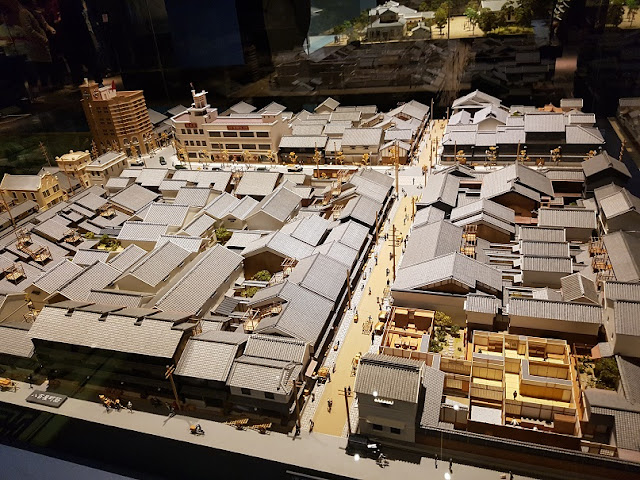
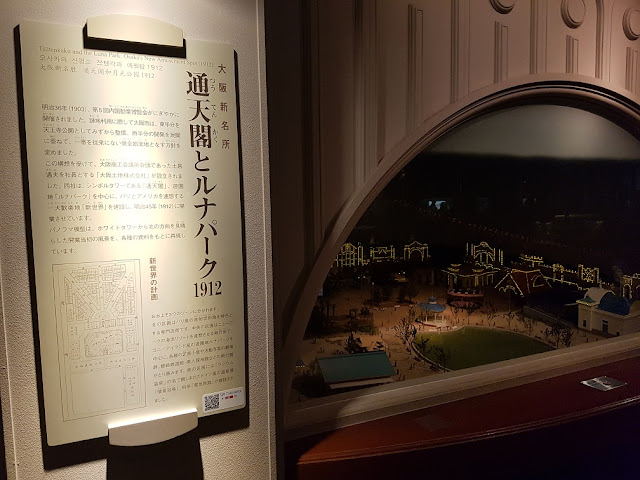

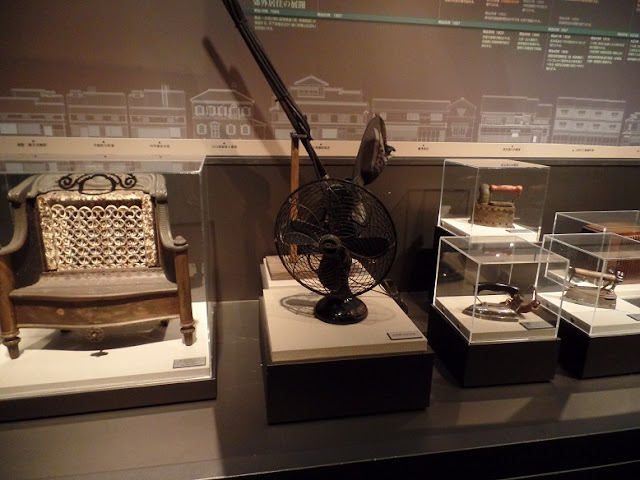
No comments:
Post a Comment